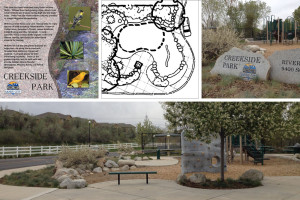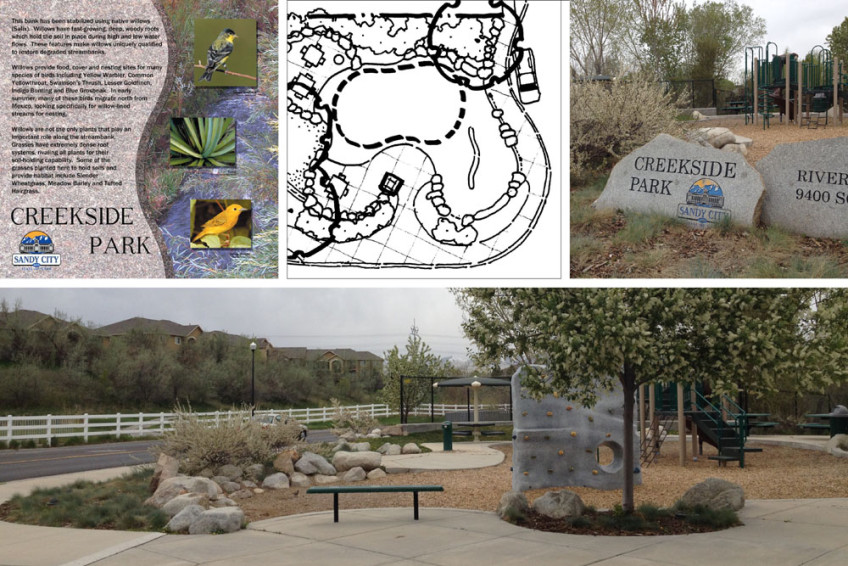A guide to selecting sustainable materials for your landscaping projects
 In the realm of modern landscape design, sustainability has become more than just a buzzword; it’s a guiding principle. As the world increasingly prioritizes eco-conscious practices, the importance of selecting the right materials for sustainable landscaping projects cannot be overstated. From mindful resource usage to eco-friendly design elements, every choice plays a pivotal role in creating a greener, more sustainable environment. In this comprehensive guide, we will explore the key considerations and best practices for selecting the most appropriate and environmentally friendly materials for your landscaping projects. By the end, you’ll be equipped with the knowledge to create stunning outdoor spaces that not only enhance the aesthetic appeal of your property but also contribute to a more sustainable future.
In the realm of modern landscape design, sustainability has become more than just a buzzword; it’s a guiding principle. As the world increasingly prioritizes eco-conscious practices, the importance of selecting the right materials for sustainable landscaping projects cannot be overstated. From mindful resource usage to eco-friendly design elements, every choice plays a pivotal role in creating a greener, more sustainable environment. In this comprehensive guide, we will explore the key considerations and best practices for selecting the most appropriate and environmentally friendly materials for your landscaping projects. By the end, you’ll be equipped with the knowledge to create stunning outdoor spaces that not only enhance the aesthetic appeal of your property but also contribute to a more sustainable future.
Understanding sustainable landscaping materials
Sustainable landscaping starts with the materials you choose. Opting for environmentally friendly options can significantly reduce the ecological footprint of your project. By understanding the various sustainable materials available, you can make informed decisions that benefit both your landscape and the planet.
Embracing recycled and reclaimed materials
Incorporating recycled and reclaimed materials is an excellent way to promote sustainability in your landscaping projects. From recycled plastic lumber for decking to reclaimed wood for garden structures, these materials not only add character to your landscape but also reduce the demand for new resources.
Exploring durable and low-maintenance options
When considering the durability and maintenance of landscaping materials, it’s essential to choose options that can withstand the elements and the test of time. Composite decking, renowned for its longevity and resistance to rot, mold, and insect damage, offers a sustainable alternative to traditional wood. By opting for composite decking, you not only eliminate the need for frequent staining or sealing but also contribute to the conservation of forests by reducing the demand for natural wood resources.
Natural stone, another durable option, provides an elegant and timeless appeal to your landscape. With various types like limestone, granite, and sandstone, natural stone is not only sturdy but also requires minimal maintenance. Its resilience against weathering and erosion ensures that your hardscaping features retain their aesthetic charm for years to come, reducing the need for replacements and the consumption of additional materials.
Metal, known for its strength and longevity, is a sustainable choice for various landscaping applications. From decorative metal fencing to durable garden structures, incorporating metal elements adds a modern and sleek touch to your landscape design. With its ability to withstand harsh weather conditions and its resistance to corrosion, using metal features minimizes the need for frequent repairs or replacements, contributing to a more sustainable and cost-effective landscaping solution.
Prioritizing native plants and organic mulches
When it comes to sustainable landscaping, the selection of plant life plays a crucial role in promoting a thriving and eco-friendly environment. Native plants, adapted to the local climate and soil conditions, require minimal water and maintenance, making them an ideal choice for sustainable landscapes. By prioritizing native plants, you not only conserve water but also support local biodiversity, providing habitats for native wildlife and beneficial insects. Additionally, native plants often have deep root systems that help prevent soil erosion and improve soil health, contributing to the overall sustainability of your landscape.
Organic mulches, such as bark chips or compost, offer multiple benefits for sustainable landscaping projects. Beyond their role in moisture retention, organic mulches naturally suppress weed growth, reducing the need for chemical herbicides that can be harmful to the environment. As organic mulches break down over time, they contribute essential nutrients to the soil, promoting healthy plant growth and minimizing the reliance on synthetic fertilizers. By using organic mulches, you create a self-sustaining ecosystem within your landscape, fostering a balanced and thriving environment for your plants and the surrounding ecosystem.
Implementing water-efficient irrigation systems
Water conservation is a cornerstone of sustainable landscaping. By integrating water-efficient irrigation systems, such as drip irrigation or rainwater harvesting systems, you can significantly reduce water waste and promote the long-term health of your landscape. These systems ensure that water is used efficiently, minimizing unnecessary runoff and evaporation.
Choosing eco-friendly paving and hardscaping materials
When it comes to hardscaping elements like pathways, driveways, and patios, opting for eco-friendly paving materials can make a significant difference. Consider alternatives such as permeable pavers, which allow rainwater to seep into the ground, preventing water runoff and replenishing the groundwater supply.
Investing in energy-efficient outdoor lighting
Energy-efficient outdoor lighting not only enhances the ambiance of your landscape but also reduces energy consumption. Choose LED lighting options that consume less power and have a longer lifespan, reducing the need for frequent replacements and minimizing your overall energy usage.
Ensuring proper waste management practices
In sustainable landscaping, proper waste management is key. Implement strategies such as composting organic waste and utilizing natural debris as mulch. By minimizing waste and maximizing the use of natural resources, you contribute to a more sustainable and eco-friendly landscape.
Consulting with sustainable landscape experts
Consulting with experts in sustainable landscaping can provide invaluable insights and guidance throughout your project. Landscape architects and designers with a focus on sustainability can help you navigate the intricate process of material selection and project execution, ensuring that your landscape reflects your commitment to environmental conservation.
The McNeil Engineering advantage
When it comes to implementing sustainable landscaping projects, McNeil Engineering is your trusted partner. With our expertise in landscape architecture and commitment to environmentally conscious practices, we bring innovative solutions that blend functionality, aesthetics, and sustainability. Our team of professionals is dedicated to helping you create a landscape that not only enhances the beauty of your property but also contributes to a greener, more sustainable future.
Discover the unparalleled expertise of McNeil Engineering and embark on your sustainable landscaping journey today. Visit us at McNeil Engineering to learn more about our sustainable landscape architecture services and how we can bring your vision to life while preserving the natural beauty of our planet.

